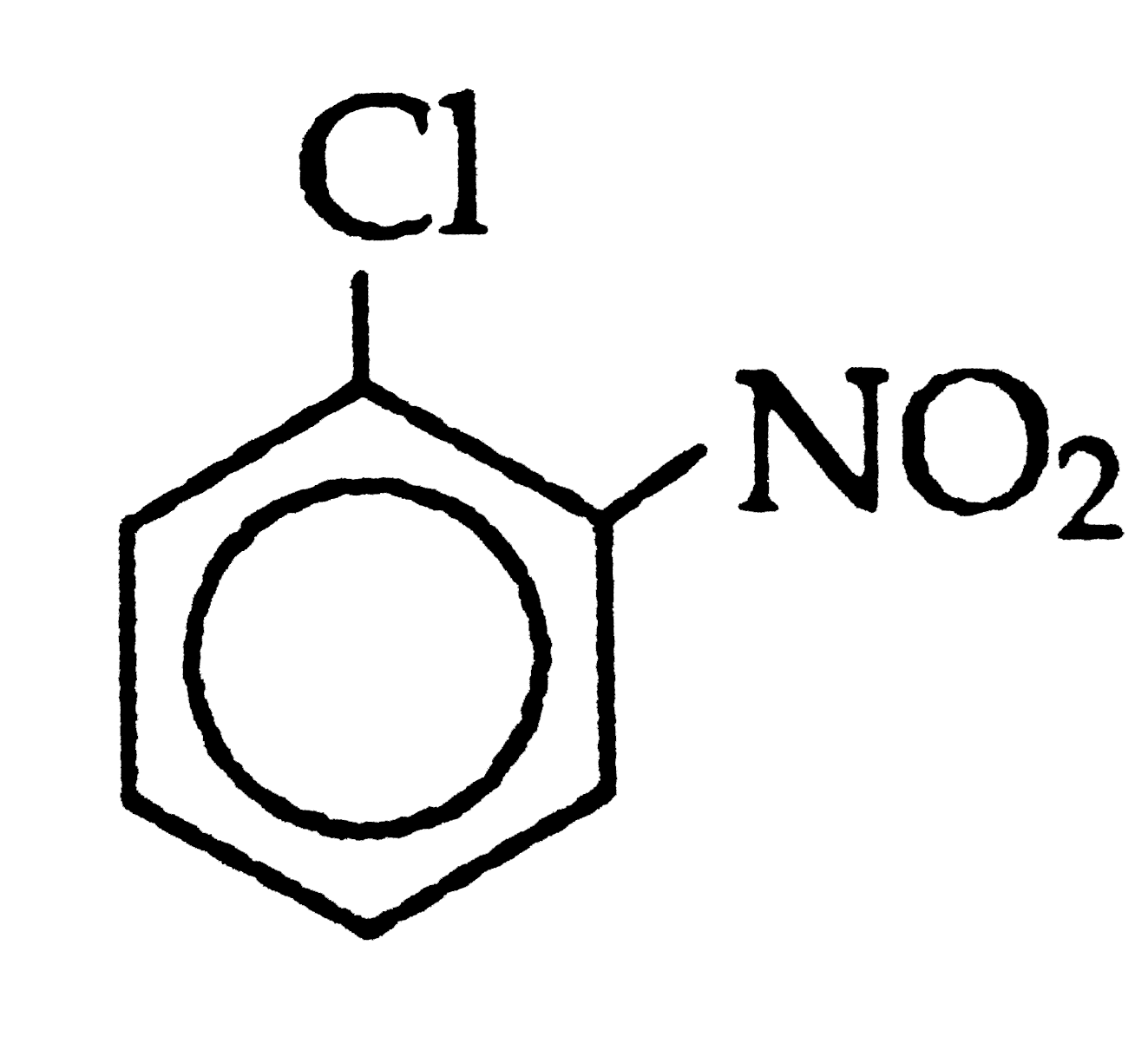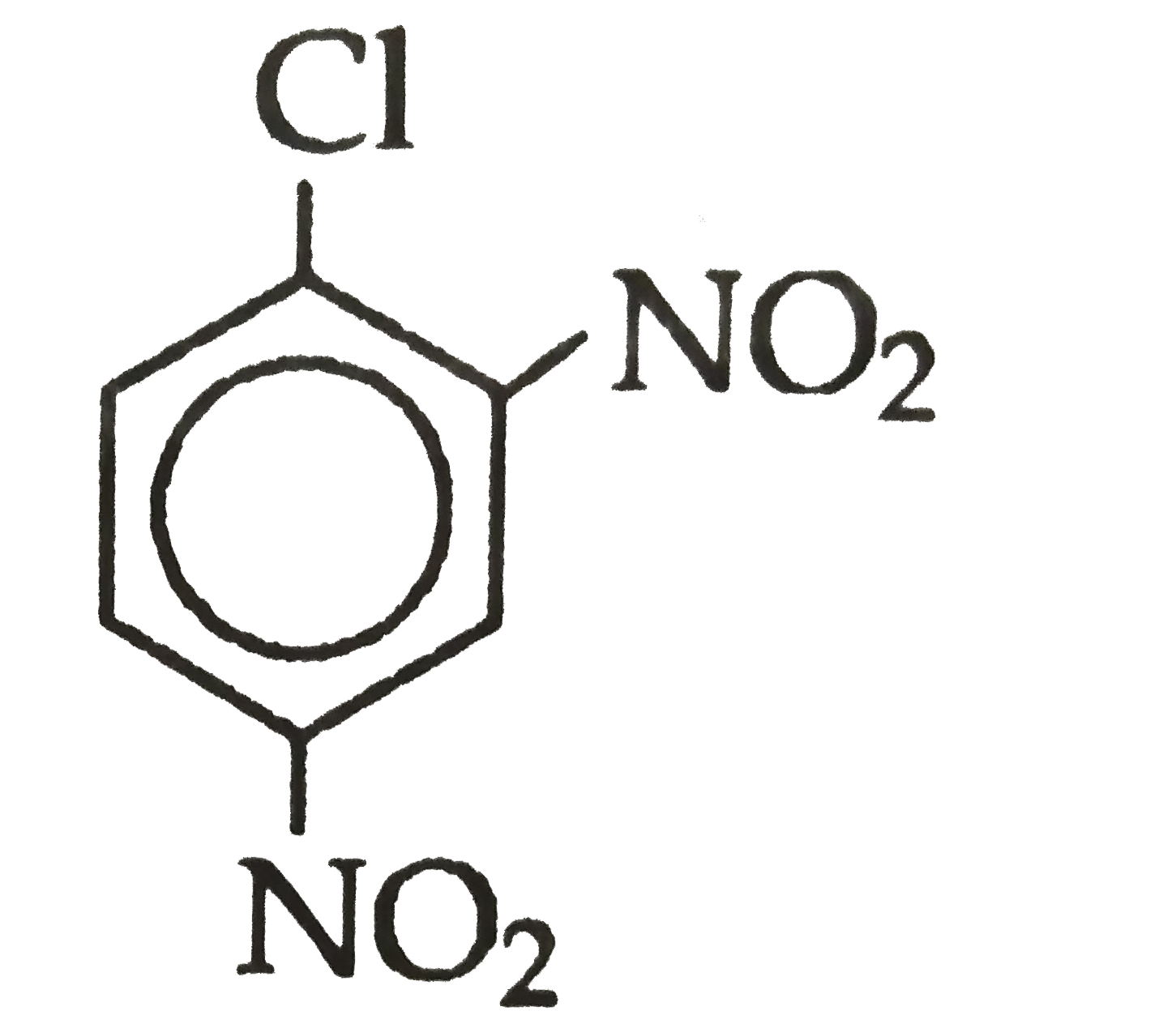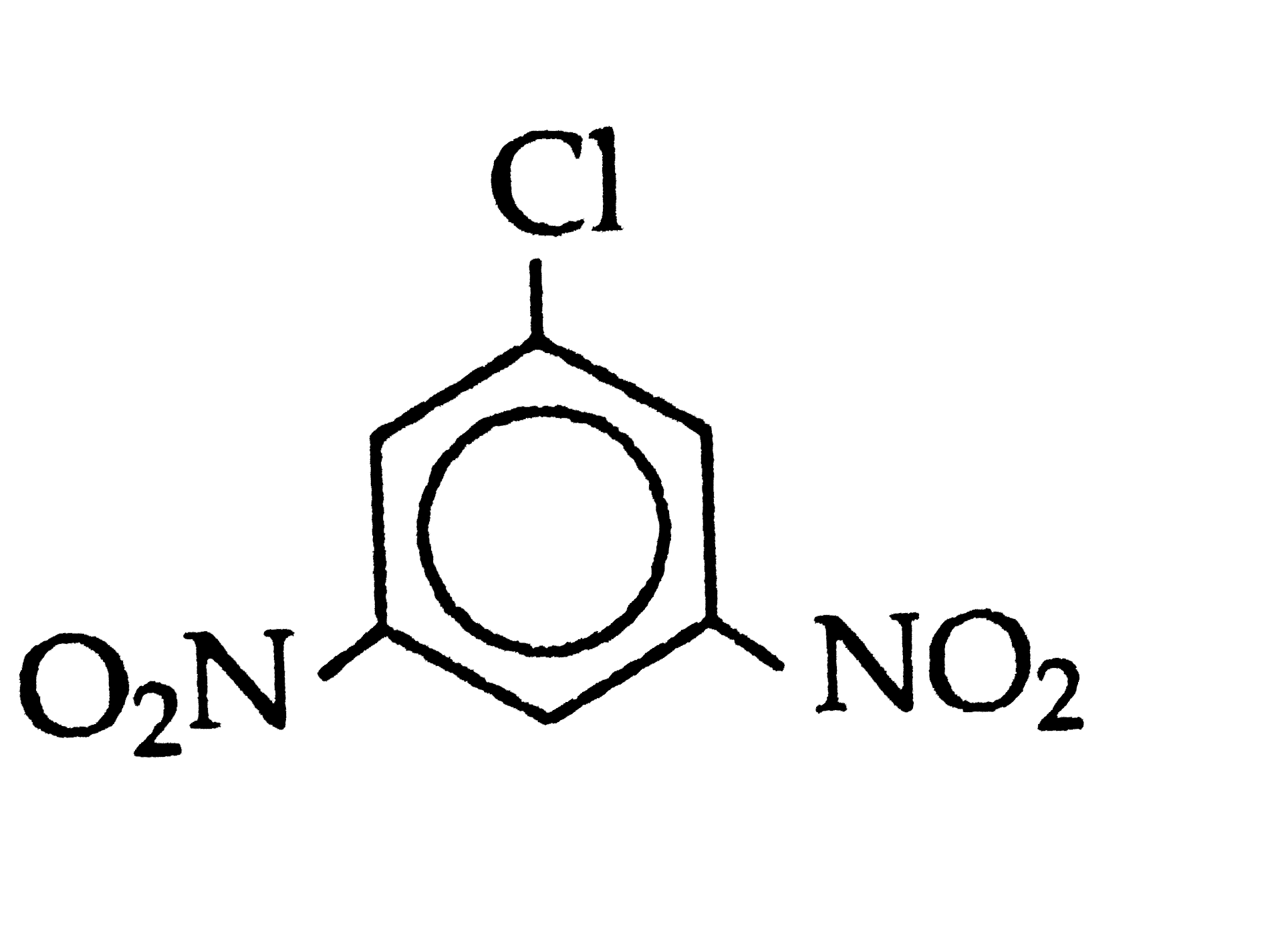The compound which is least reactive among the following in a nucleophilic substitution reaction is
CH2=CHCl
CH3CH2Cl
CH2=CHCH2Cl
(CH3)3C−Cl
The correct Answer is:A
To determine which compound is least reactive in a nucleophilic substitution reaction, we need to analyze the hybridization of the carbon atom bonded to the halogen in each compound. The reactivity in nucleophilic substitution reactions is influenced by the bond strength of the carbon-halogen bond, which is affected by the hybridization of the carbon atom.
1. Identify the Hybridization of Carbon in Each Compound:
- Option 1: Vinyl halide (C=C-X) - The carbon is sp² hybridized.
- Option 2: Ethyl chloride (C-C-X) - The carbon is sp³ hybridized.
- Option 3: Allylic halide (C=C-C-X) - The carbon is sp³ hybridized but is in an allylic position.
- Option 4: Tertiary halide (C-C-C-X) - The carbon is sp³ hybridized and is tertiary.
2. Evaluate the Bond Strength:
- The carbon-halogen bond strength is highest in sp² hybridized carbons (like in vinyl halides) due to the increased s-character. This means that the bond is stronger and harder to break.
- In sp³ hybridized carbons, the carbon-halogen bond is weaker and easier to break.
3. Consider Stability of Carbocations:
- In nucleophilic substitution reactions, the formation of a stable carbocation can enhance reactivity.
- Vinyl halides do not form stable carbocations because they are sp² hybridized.
- Tertiary halides form very stable carbocations, making them more reactive.
4. Conclusion:
- Since the vinyl halide (Option 1) has the strongest carbon-halogen bond due to sp² hybridization and does not form a stable carbocation, it is the least reactive in nucleophilic substitution reactions.
Final Answer:
The compound which is least reactive among the following in a nucleophilic substitution reaction is Option 1 (Vinyl Halide).
- Option 1: Vinyl halide (C=C-X) - The carbon is sp² hybridized.
- Option 2: Ethyl chloride (C-C-X) - The carbon is sp³ hybridized.
- Option 3: Allylic halide (C=C-C-X) - The carbon is sp³ hybridized but is in an allylic position.
- Option 4: Tertiary halide (C-C-C-X) - The carbon is sp³ hybridized and is tertiary.
- The carbon-halogen bond strength is highest in sp² hybridized carbons (like in vinyl halides) due to the increased s-character. This means that the bond is stronger and harder to break.
- In sp³ hybridized carbons, the carbon-halogen bond is weaker and easier to break.
- In nucleophilic substitution reactions, the formation of a stable carbocation can enhance reactivity.
- Vinyl halides do not form stable carbocations because they are sp² hybridized.
- Tertiary halides form very stable carbocations, making them more reactive.
- Since the vinyl halide (Option 1) has the strongest carbon-halogen bond due to sp² hybridization and does not form a stable carbocation, it is the least reactive in nucleophilic substitution reactions.
The compound which is least reactive among the following in a nucleophilic substitution reaction is Option 1 (Vinyl Halide).
Topper's Solved these Questions
Similar Questions
Knowledge Check
The order of reactivity in nucleophilic substitution reaction is
ACH3F<CH3Cl<CH3I<CH3BrBCH3F<CH3Cl<CH3Br<CH3ICCH3F<CH3Br<CH3Cl<CH3IDCH3I<CH3Br<CH3Cl<CH3FWhich of the following is least reactive in a nucleophilic substitution reaction?
A(CH3)3C−ClBCH2=CHClCCH3CH2ClDCH2=CHCH2ClWhich of the following is more reactive in nucleophilic substitution reaction
A (##NIK_OBJ_CHE_XII_C10_E02_017_O01.png" width="30%">B C
C D
D
Phenol is least reactive for aromatic nucleophilic substitution because
View SolutionWhich one is least reactive in a nucleophilic substitution reaction?
View SolutionWhich of the following is least reactive towards nucleophilic substitution?
View SolutionWhich one is a nucleophilic substitution reaction among the following ?
View SolutionWhich is least reactive towards nucleophilic substitution (SN2)
View Solution
